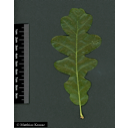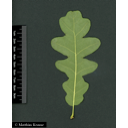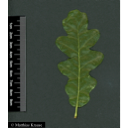Useful information about the taxon (species, subspecies, variety...)
Quercus cerris L. 1753
Fagaceae
(APG IV)Turkey oak
Akzessionnummer: KLB-062-20450
Pflanzjahr: 0
Taxon concept: The Plant List (2014), version 1.1
Distribution: southern Europe, Asia Minor, Lebanon; introduced to central Spain
Quercus cerris L. - Accepted: Quercus cerris L. bei Zander 2008; Familie: Fagaceae (Zander 2008)Quercus cerris L. - Accepted: Quercus cerris L. bei The Plant List (2014), version 1.1; Familie: Fagaceae (APG III)Quercus cerris L. - Accepted: Quercus cerris L. bei BfN Checklist Flora DE; Familie: Fagaceae (APG IV)Quercus cerris L. - Accepted: Quercus cerris L. bei World Flora Online; Familie: Fagaceae (APG IV)
- Life form
- tree
- Foliage persistence
- deciduous
- Natural occurrence (habitat)
- sunny and dry slopes
Erhardt, W., Götz, E., Bödeker, N. & Seybold, S. (2008): Der große Zander. Enzyklopädie der Pflanzennamen. Band 2. Arten und Sorten. Eugen Ulmer KG, Stuttgart (Hohenheim), 18. Aufl., 2103 S.; The International Plant Names Index (2009). Published on the Internet http://www.ipni.org; Courtesy to IPNI, 2009. Exported from IPNI at date: 2009-09-22 20:17:51;
Diese Webseite verwendet Google Maps, um Karten und Standorte von Pflanzen in den Hohenheimer Gärten anzuzeigen. Dadurch werden unter Umständen Daten an Google weitergeleitet, was mit einer Verarbeitung Ihrer personenbezogenen Daten verbunden sein kann. Die Datenschutzerklärung von Google finden Sie hier: Datenschutzerklärung von Google




